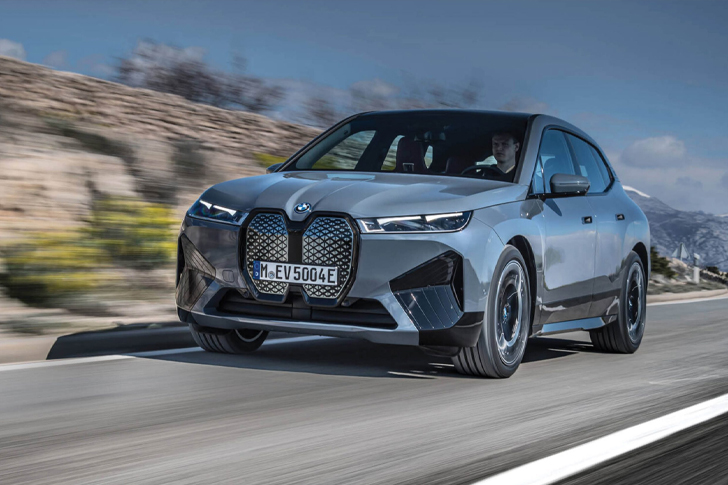Evaluating the Cost of BMW’s Latest Electric Model, the IX
As the automotive industry continues its shift towards sustainability, luxury car manufacturers are not staying behind. BMW, known for its high-performance luxury cars, has recently introduced the BMW iX, its latest electric model. This article evaluates the cost of owning the BMW iX, considering various factors such as purchase price, government incentives, maintenance, and overall running costs. Understanding these factors will help potential buyers make an informed decision.

Initial Purchase Price
The BMW iX, launched as a part of BMW’s ambitious plans to electrify its vehicle lineup, comes with a hefty price tag. The base model, the BMW iX xDrive40, starts at approximately $83,200, while the more advanced xDrive50 model begins around $93,000. This pricing positions the iX among the higher echelons of the electric vehicle (EV) market, competing directly with luxury electric SUVs like the Tesla Model X and Audi e-tron.
For customers willing to enhance their driving experience, there are additional costs associated with various premium packages that include upgraded interiors, advanced driver-assistance systems, and enhanced battery capacities. For example, upgrading to the Bowers & Wilkins sound system or the BMW Personal CoPilot package significantly increases the cost.
Government Incentives and Tax Benefits
In many regions, electric vehicles benefit from government incentives that can greatly reduce the initial cost. In the United States, buyers of new EVs can take advantage of a federal tax credit of up to $7,500, depending on the battery size and the vehicle’s manufacturing specifics. Individual states may offer additional incentives, including rebates, tax exemptions, and grants. However, it’s crucial to check local laws as these incentives can change and might vary based on specific criteria, such as the vehicle price cap for eligibility.
In Europe, similar incentives are available. For example, in Germany, electric vehicles priced under €60,000 qualify for a subsidy, which can be combined with manufacturer discounts. While the BMW iX’s starting price exceeds this cap, partial incentives still apply, making it somewhat more affordable for European buyers.
Maintenance and Running Costs
Electric vehicles are generally cheaper to maintain than their internal combustion counterparts. The BMW iX is no exception. It does away with many of the conventional engine parts that frequently need servicing or replacement. For instance, EVs do not require oil changes, fuel filters, spark plugs, or emission checks.
BMW offers a comprehensive maintenance program that covers the iX, significantly reducing maintenance worries for the first few years of ownership. Additionally, the energy costs of running an electric vehicle are typically lower than the fuel costs for traditional vehicles. For instance, the iX features a highly efficient electric powertrain that allows it to travel approximately 300 miles on a single charge, depending on the model. Electricity costs for charging the car will vary based on local rates but generally remain lower than gasoline prices per mile.
Resale Value and Depreciation
As with any vehicle, depreciation is a significant factor to consider. Electric vehicles historically faced steeper depreciation rates due to the rapid pace of improvements in EV technology, which can make older models seem outdated quickly. However, the trend is changing as EVs become more mainstream. Premium brands like BMW tend to maintain better resale values, and the iX, with its cutting-edge technology and luxury branding, is likely to depreciate at a slower rate compared to other EVs. Factors contributing to this include BMW’s brand prestige and widespread acceptance of EVs, coupled with increasing environmental regulations pushing more consumers towards electric vehicles.
Environmental Impact and Future Savings
Purchasing an electric vehicle like the BMW iX also has significant environmental benefits. EVs produce zero emissions at the point of use, which significantly reduces the local air pollutants. Considering the broader adoption of renewable energy sources like solar and wind, the long-term environmental impact of driving an electric vehicle will decrease over time.
Furthermore, future savings should also be considered. With governments worldwide imposing stricter emissions regulations, the cost of owning gasoline and diesel cars is expected to increase, be it through higher fuel prices or taxes. Electric vehicles are likely to be less affected by such changes, making the BMW iX a potentially wise investment for the eco-conscious driver.
In conclusion, while the BMW iX comes with a high initial price tag, the total cost of ownership can be mitigated through government incentives, lower maintenance costs, and future energy savings. When paired with the potential for slower depreciation and significant environmental benefits, the iX represents a compelling, albeit premium, entry into the electric vehicle space.







Recent Comments